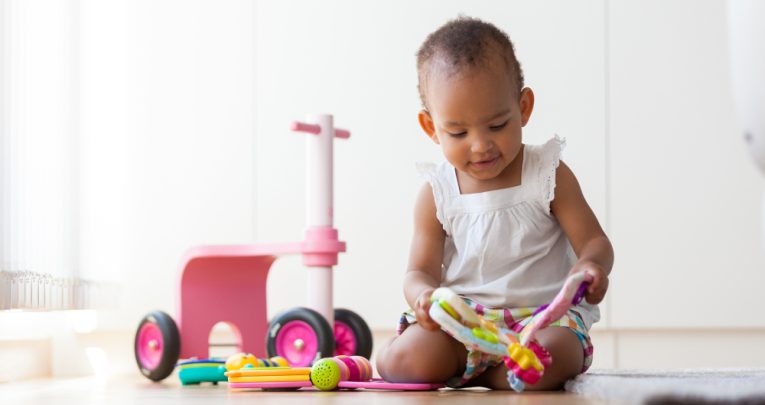Plan the Perfect Place for Early Years Children to Play

Resist the urge to bombard children with new toys – keep things simple and sensory, and watch their learning flourish, says Sarah Ockwell-Smith…

- by Sarah Ockwell-Smith
- Bestselling author and leading expert on gentle parenting Visit website

1 | Let them choose
Adults dictate most aspects of young children’s lives, but play is one area where the latter should take full control. Provide storage solutions that allow children to select their own playthings, without adult support.
Respect their choices, and don’t be tempted to guide them to something else that you feel is more fun or better suited to them.
2 | Open-ended play
The old joke that children would rather play with the box a new toy comes in than the toy itself is true! Many toys have limited play value, and their appeal is quickly exhausted.
Selecting toys that have no specific use or aim enables children to use their imaginations to the fullest and usually holds their interest for far longer.
3 | Simplify and rotate
Children own more toys than any generation before, and the choice can be just as overwhelming in early years settings. Simplify and thin out your selection to reduce fights, hold interest and reduce sensory overload.
‘Rotating’ toys takes things one step further – offering only a small selection at a time and updating it regularly will keep your offering fresh.
4 | Sensory experiences
Children learn best through their senses, so the more sensory play you offer, the better for most. Consider how items feel, smell and sound as well as how they look.
Be careful, however, of any children in your care who struggle with sensory processing issues; for some children, play can become overwhelming, and they may require less stimulating playthings.
5 | Lessons in sharing
Although young children lack most of the neural connections necessary to share, nurturing the seeds of sharing through your environment can help. Do you have a plaything that is very popular? Consider investing in another to avoid conflict.
For older children, purchasing cooperative games, or games where there is a team victory, is a wonderful way to encourage positive behaviours.
Sarah Ockwell-Smith is a parenting author and mother of four. She is the author of The Gentle Eating Book (Piatkus, £14.99) – a guide to understanding children’s eating habits from birth upwards.










